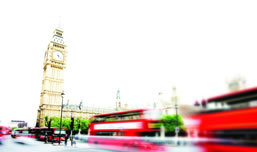Leveson: the future
Following publication of the report at the end last year:
- Labour has published a draft Press Freedom and Trust Bill 2012. This Bill has a similar structure to Leveson's proposed structure . However, the Bill suggests that a Press Standards Trust should be recognised by a Recognition Panel, the powers of which would be exercised by the Lord Chief Justice. For the Trust to be recognised, its membership would need to be "substantially the totality" of newspapers, and news periodicals (both hard copy and online) and "every other periodical circulating in the UK" and its associated content.
- Lord Lester has also prepared a draft Bill in which he suggests an Independent Press
 Council which would consider complaints and provide redress to complainants, including imposing sanctions. It would be overseen by a board, which in turn would be overseen by an independent panel (the majority of which would be independent of the press). The President of the Supreme Court would certify that the structure complied with the Act.
Council which would consider complaints and provide redress to complainants, including imposing sanctions. It would be overseen by a board, which in turn would be overseen by an independent panel (the majority of which would be independent of the press). The President of the Supreme Court would certify that the structure complied with the Act. - Meanwhile, Lord Hunt (chair of the Press Complaints Commission) is working with the press to try and achieve a system of voluntary independent self regulation to be up and running by July of this year. He has hosted a series of meetings, bringing together editorial and non-editorial figures from across the newspaper and magazine industry. His stated aim is to create "a truly effective but non-statutory regulatory system……to establish…the highest possible professional standards right across the newspaper and magazine industry, and among digital-only news publishers too, all underpinned by law, but civil contract law…..I am confident that, together with the industry, I can deliver that new structure with comprehensive sign-up right across the newspaper and magazine industry by the middle of this year."
- The Government produced a draft Press Standards Bill shortly after publication, to set out how Lord Justice Leveson's legislative recommendations might be articulated in the form of a statute. However, the Prime Minister and the Secretary of State for culture, media and sport have both expressed serious concerns about introducing an element of statute. The Government is now exploring a range of options to consider how the "verification" role of the press standards body could be undertaken using non-legislative means. One of the proposals being debated at the moment is the idea of underpinning the regulator by royal charter.
In the meantime, European developments have the potential to drive a coach and horses through whatever solution is reached in the UK regarding press regulation. European Commission Vice President, Neelie Kroes, convened a High Level Group on Media Freedom and Pluralism back in October 2011. Interestingly, Lord Justice Leveson does not mention this Group anywhere in his 2,000 page report. To date, the Group's work has not been taken into consideration in forming the various proposals being debated.
 The Group was asked to draw up a report for the European Commission with recommendations for the respect, protection, support and promotion of pluralism and freedom of the media in Europe. It published its report at the end of January 2013. The report makes a series of recommendations but the key ones that, if implemented, will impact on any system of press regulation the UK seeks to adopt are as follows:
The Group was asked to draw up a report for the European Commission with recommendations for the respect, protection, support and promotion of pluralism and freedom of the media in Europe. It published its report at the end of January 2013. The report makes a series of recommendations but the key ones that, if implemented, will impact on any system of press regulation the UK seeks to adopt are as follows:
- "Any new regulatory frameworks must be brought into line with the new reality of a fluid media environment, covering all types of journalistic activities, regardless of the transmission medium." In other words, with the increasing convergence of media, all media should be subject to the same or similar rules.
- All media organisations (not just the press) should follow clearly identifiable codes of conduct and editorial lines, and apply the principal of editorial independence which should be made publicly available.
- "All EU countries should have independent media councils with a politically and culturally balanced and socially diverse membership. Nominations to them should be transparent, with built-in checks and balances. Such bodies would have competences to investigate complaints, much like a media ombudsman, but would also check that media organisations have published a code of conduct and have revealed ownership details, declarations of conflicts of interest, etc. Media councils should have real enforcement powers, such as the imposition of fines, orders for printed or broadcast apologies, or removal of journalistic status. The national media councils should follow a set of European-wide standards and be monitored by the Commission to ensure that they comply with European values."
The report will now be considered by the European Commission. The Commission may then issue a proposal for European legislation. This would then have to be considered by the European Parliament. Following this, the passage for European legislation is arduous, particularly for a complicated and controversial piece of legislation such as the one being contemplated here. Assuming that any resulting legislation takes the form of a European Directive, once adopted, this would then have to be implemented via national legislation by each of the 27 Member States. In short, we are far away from a European solution (potentially, the best part of a decade). For the moment, the future of UK press regulation can continue to evolve without constraints from Europe. Given the timing of any European developments, it seems very unlikely that the Government will stall on the solution to press regulation.
 The Government's proposal that the independent regulator be underpinned by a royal charter was originally billed as a way of avoiding statutory underpinning and thereby any form of State regulation. During the House of Lords debate on 11 January, Lord Fowler said that a charter would hand over control to the Privy Council and, as the Privy Council's own guidance says:"This effectively means a significant degree of Government regulation of the affairs of the body". He said: "a charter will certainly require legislation - legislation otherwise known by some as statutory intervention." Lord Hennessy had this to say: "I do not think that a replica of the BBC-style royal charter is at all the way to do this….the merest glance at the 2006 [BBC] charter shows just how intrusive this allows Governments to be in the institutional structures of the corporation's governance." For these reasons, one can easily see the press rejecting this as a palatable alternative to statutory underpinning.
The Government's proposal that the independent regulator be underpinned by a royal charter was originally billed as a way of avoiding statutory underpinning and thereby any form of State regulation. During the House of Lords debate on 11 January, Lord Fowler said that a charter would hand over control to the Privy Council and, as the Privy Council's own guidance says:"This effectively means a significant degree of Government regulation of the affairs of the body". He said: "a charter will certainly require legislation - legislation otherwise known by some as statutory intervention." Lord Hennessy had this to say: "I do not think that a replica of the BBC-style royal charter is at all the way to do this….the merest glance at the 2006 [BBC] charter shows just how intrusive this allows Governments to be in the institutional structures of the corporation's governance." For these reasons, one can easily see the press rejecting this as a palatable alternative to statutory underpinning.
At this point, all eyes are on Lord Hunt. We wait to see whether he can get all of the key players on board and establish a contractual system that all of them can agree on. If they cannot, statute looks likely. However, it is questionable how future proof a statutory solution can be. With increasing media convergence, Lord Inglewood explained: "the digital revolution, in the form of convergence, means that all these means of communication are now electronic binary code. The same code delivers across a whole range of different platforms, such as computers, tablets, mobiles and internet protocol television, and across any jurisdiction. Television news and current affairs are morphing into blogs and websites, which in turn are merging with newspapers, which now have moving images on their apps, websites, and so on. As the printing presses go to the physical scrapyard, the framework for regulation is going to the metaphorical one. This is the real challenge of anyone trying to place an ethical framework around the media in the future since, as I have already shown, our existing approach is built around distinct platforms that will become increasingly irrelevant."
If you have any questions on this article please contact us.

"European developments have the potential to drive a coach and horses through whatever solution is reached in the UK regarding press regulation."

